Why Am I Breaking Out? 8 Sneaky Causes of Acne - From Secrets to Solutions
Feb 01, 2024 By Madison Evans
Are persistent acne breakouts leaving you feeling frustrated and self-conscious? You're not alone. To effectively dismiss those blemishes once and for all, you must understand what may be causing them in the first place. In this article, we'll reveal eight sneaky causes contributing to your recurring acne – from seemingly harmless daily habits like sleeping patterns or diet choices - so you can finally control your skin health again while restoring confidence.
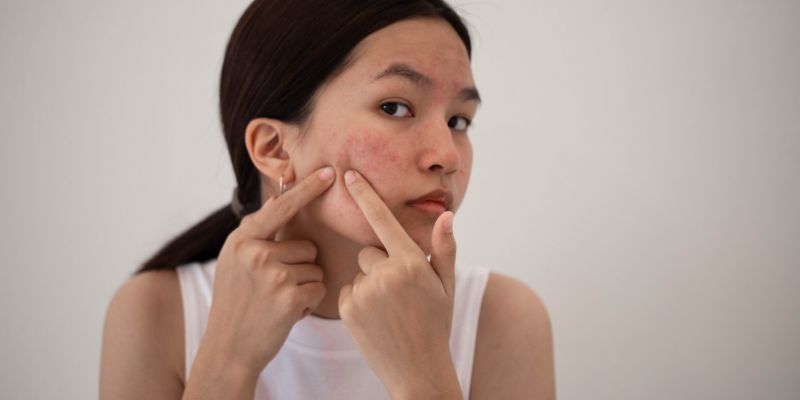
1. Hormonal Imbalances
Hormonal Imbalance is a significant and common cause of acne. During puberty, when androgens like testosterone levels rise, the sebaceous glands on the face may make more oil. This extra oil could mix with germs and dead skin cells, making it an ideal place for breakouts. But hormonal problems can happen to people of all ages, not just teens.
Women frequently encounter acne during their menstruation due to variations in hormone levels, while pregnancy or post-menopause could lead to changes that impact one's overall skin health. Seeking medical intervention for hormonal outbreaks can produce positive outcomes.
2. Nutrition and Diet
Studying the connection between diet and acne is fascinating. Studies indicate that food with high glycemic index, such as processed snacks and sugary treats, can cause fluctuations in blood sugar levels, increasing oil production and inflammation on your skin due to insulin spikes. Additionally, dairy items contain hormones & growth factors affecting oil production HAD, indirectly causing breakouts. On the other hand, a balanced meal containing antioxidants and vitamins could promote healthier-looking skin by reducing swelling, thereby boosting general wellness for a vibrant complexion - emphasizing how consuming proper nutrients matters!
3. Products for Skincare
In the world of skincare, numerous choices exist. Nevertheless, not all products possess similar quality standards. Specific options comprise harsh components that can strip off natural oils from your skin and induce over-production of oil in an attempt to compensate for the loss.
Non-comedogenic products are ideal for those who suffer from acne-prone skin as they won't block pores. Additionally, proper cleansing habits - including regular and thorough makeup removal - prevent sweat. Ultimately, selecting appropriate skincare while maintaining a consistent skincare routine is critical to reducing acne.
4. Stress and Anxiety
Acne management is fascinated by the connection between the mind and skin. In times of stress or anxiety, cortisol - a hormone responsible for stress response - can increase oil production from glands on your skin, leading to acne symptoms. Higher stress levels may also compromise natural immune defence mechanisms against bacteria that cause acne outbreaks.
To keep internal harmony and external clarity intact, daily measures like yoga sessions or breathing techniques aimed at reducing stress are incredibly beneficial for mental wellness and improving physical well-being, with visibly calm skin being a key benefit.
5. Medications
The effects of medications on acne are a fascinating field to explore. Disturbance in hormonal balance or increased oil production, as side effects caused by certain medicines like steroids and lithium, can lead to breakouts. However, some specific oral contraceptives can help control hormones, improving skin quality. If you suspect your medication leads to breakout issues, speaking with your healthcare provider about alternate treatments could result in finding the right solution for both health and skin.
6. Environmental Factors
The impact of environmental factors on acne is a significant concern. When smog and dust accumulate on the skin's surface, they blend with sweat and sebum, forming blockages in pores that result in acne. Maintaining clear skin requires strict facial cleansing, especially in a polluted area.
Protecting your skin from environmental toxins can be accomplished by wearing a mild cleanser and sunscreen; it's like giving your skin its armour against dirt and other gunk - a protective boundary that keeps the impurities away!
7. Lack of Sleep
It's intriguing how sleep and skin health are connected. While in deep sleep, your body enters repair mode, boosting the regeneration of skin cells. However, failing to get adequate rest can interrupt this process, resulting in increased inflammation and a slow healing response.
Getting 7-9 hours of quality sleep enables your skin to recover effectively, waking you up with a revitalized complexion. Therefore, prioritizing comfortable sleeping arrangements and healthy habits is beneficial for better energy levels and nourishing for beautiful-looking skin!
8 Sleeping on a dirty pillowcase.
Dirty pillowcases can significantly contribute to acne breakouts. Every night, our face and hair transfer sweat, oils, and debris onto the fabric when we rest our heads on a dirty pillowcase. As time goes by, this buildup becomes an ideal breeding ground for bacteria that cause acne. Contacting clean skin against dirt-filled surfaces over countless hours will likely cause pore blockage, resulting in skin irritation. Therefore, maintaining cleanliness while regularly washing your pillows should be part of your routine skin care practice as it helps prevent acne and promotes clear skin.
How to soothe a breakout
- Begin your skincare routine with a gentle, fragrance-free, non-comedogenic cleanser for washing your face. Avoid harsh products as they may aggravate the skin further.
- Do not yield to the urge to pop or squeeze pimples, as it may introduce bacteria, worsen inflammation and result in scarring.
- Place a fresh ice pack or cold compress wrapped in a clean towel over the breakout region for five to ten minutes. This may aid in calming redness and reducing inflammation.
- To keep your skin hydrated, utilize a non-comedogenic, oil-free, lightweight moisturizer. Even if you possess an oily skin type, it's crucial to retain the skin's barrier function by using a reliable moisturizing formula.
- If your breakout is causing significant distress, persists or is severe, it may be beneficial to consult a dermatologist. They can provide prescription-strength treatments and suggest personalized, specialized skincare routines.
It's important to remember that combatting acne requires patience, and results may not show immediately. Consistently following a skincare routine while remaining patient is crucial. If you suffer from severe or painful breakouts, or OTC treatments don't improve your condition, seeking advice from a dermatologist is strongly advised as they can offer customized guidance and treatment options tailored to your specific skin needs.
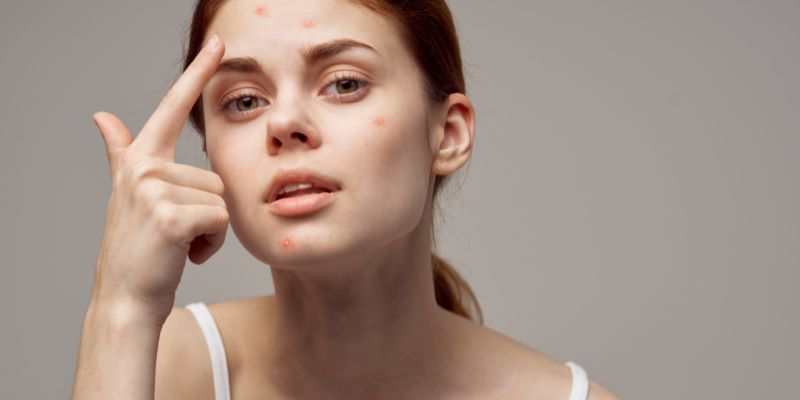
Conclusion:
In conclusion, there are several sneaky reasons for acne outbreaks. Addressing these underlying causes is critical to attain clean and healthy skin. Your skin's health may be significantly improved by adopting proactive measures and, when necessary, obtaining expert assistance. Remember that getting clean skin is a process and that you can conquer acne and benefit from the confidence that comes with it!!

Top 3 Hyperextension Workouts For Your Back and Glute Muscles

Healthy or Not: The Truth About Gummy Bears

Folate Vs. Folic Acid - Why The Difference Matters
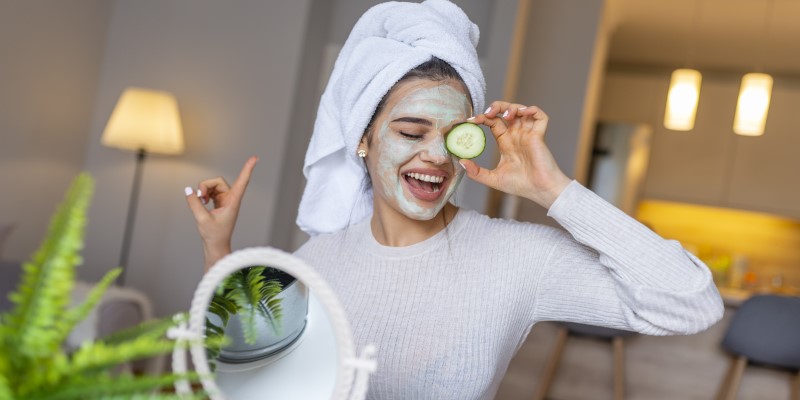
Decoding Facial Care: How Often Is Ideal for Your Skin?

Shrimp and Wellness: Debunking the Myths About This Popular Seafood
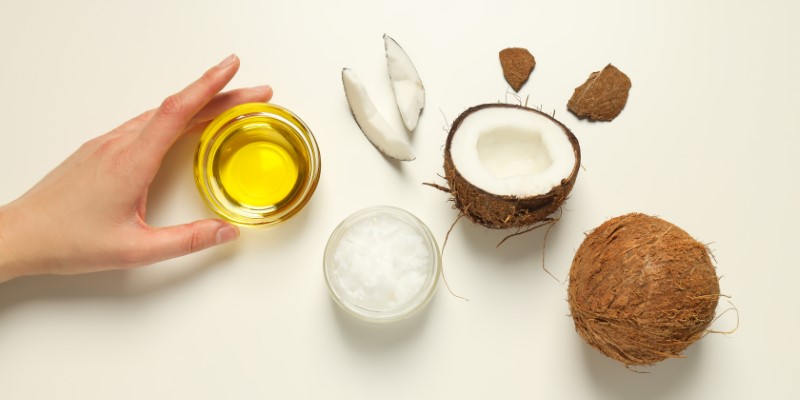
Why Palmitic Acid in Coconut Oil Is More Important Than You Think
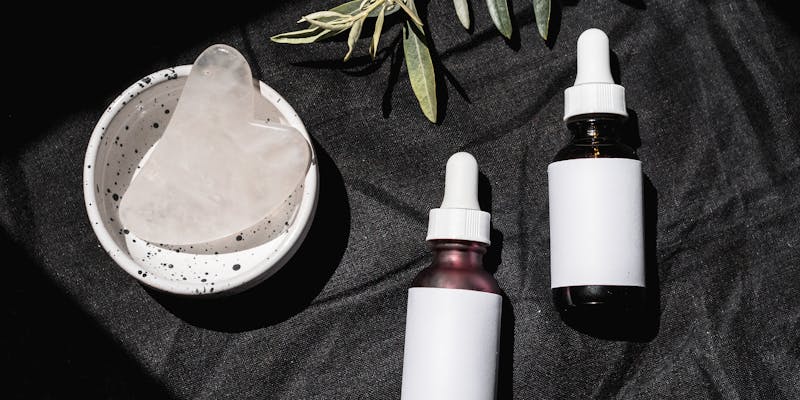
Tretinoin vs. Retinol? What's The Difference Between The Two?


